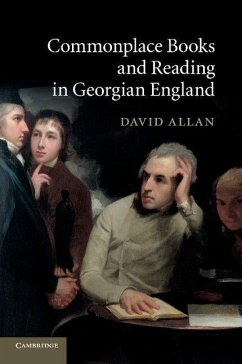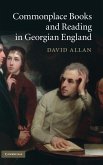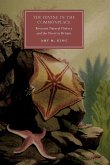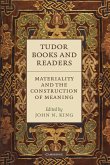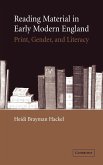This pioneering exploration of Georgian men and women's experiences as readers explores their use of commonplace books for recording favourite passages and reflecting upon what they had read, revealing forgotten aspects of their complicated relationship with the printed word. It shows how indebted English readers often remained to techniques for handling, absorbing and thinking about texts that were rooted in classical antiquity, in Renaissance humanism and in a substantially oral culture. It also reveals how a series of related assumptions about the nature and purpose of reading influenced the roles that literature played in English society in the ages of Addison, Johnson and Byron; how the habits and procedures required by commonplacing affected readers' tastes and so helped shape literary fashions; and how the experience of reading and responding to texts increasingly encouraged literate men and women to imagine themselves as members of a polite, responsible and critically aware public.
Bitte wählen Sie Ihr Anliegen aus.
Rechnungen
Retourenschein anfordern
Bestellstatus
Storno

